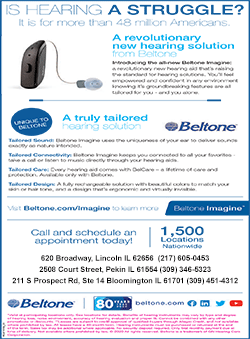CDC orders sweeping U.S. transportation mask mandate as COVID-19 rages
 Send a link to a friend
Send a link to a friend
 [January 30, 2021]
By David Shepardson [January 30, 2021]
By David Shepardson
WASHINGTON (Reuters) - The U.S. Centers for
Disease Control and Prevention (CDC) issued a sweeping order late Friday
requiring the use of face masks on nearly all forms of public
transportation Monday as the country continues to report thousands of
daily COVID-19 deaths.
The order, which takes effect at 11:59 p.m. EST on Monday (0459 GMT
Tuesday), requires face masks to be worn by all travelers on airplanes,
ships, trains, subways, buses, taxis, and ride-shares and at
transportation hubs like airports, bus or ferry terminals, train and
subway stations and seaports.
President Joe Biden on Jan. 21 ordered government agencies to
"immediately take action" to require masks in airports and on commercial
aircraft, trains and public maritime vessels, including ferries,
intercity bus services and all public transportation.

Under Donald Trump, who was president until Jan. 20, a CDC push to
mandate masks in transit was blocked and the agency instead only issued
strong recommendations for mask use. Trump also rejected efforts by
Congress to mandate mask use.
"Requiring masks on our transportation systems will protect Americans
and provide confidence that we can once again travel safely even during
this pandemic," said the 11-page order signed by Marty Cetron, director
for CDC's Division of Global Migration and Quarantine.
While airlines and most transit modes already require masks, the CDC
order will make not wearing a mask a violation of federal law that could
make it easier for flight attendants and others to enforce.
A U.S. airline group told Biden this month that carriers had had to bar
"thousands of passengers" from future flights for failing to comply with
airline mask policies.
The CDC said people violating the order could potentially face criminal
penalties but suggested civil penalties would be more likely if needed.
The order will be enforced by the Transportation Security Administration
and federal, state and local agencies.
The order says passengers must wear a mask in transit except for brief
periods, such as to eat, drink or take medication. Masks may be either
manufactured or homemade.
[to top of second column]
|

Travelers wearing protective face masks to prevent the spread of the
coronavirus disease (COVID-19) reclaim their luggage at the airport
in Denver, Colorado, U.S., November 24, 2020. REUTERS/Kevin Mohatt

The only exceptions are for travelers younger than two and for those
with certain medical conditions. People in private cars and solo
commercial truck drivers do not have to wear masks.
U.S. airlines raised concerns this week about passenger requests to
opt out of mask-wearing on health grounds.
The CDC order says airlines and other transit modes may require
medical documentation and consultation by a medical specialist as
well as requiring a negative COVID-19 test from a passenger in order
to board a plane or other mode of transportation.
The CDC said this week it was "actively looking" at requiring
negative COVID-19 tests for domestic air travel after mandating it
for nearly all international travel effective Jan. 26. The prospects
of domestic COVID-19 testing drew strong opposition Friday from
airlines and other groups.
The CDC order says airlines and other operators must "at the
earliest safe opportunity, disembark any person who refuses to
comply."
Federal agencies must submit plans no later than Friday to enforce a
separate Biden order requiring masks in all federal building and on
all federal lands.

A Jan. 24 White House memo says domestic travel for federal
employees "should be limited to only mission-critical trips," and
occupancy at federal offices should be limited to 25% during
"periods of high community prevalence."
(Reporting by David Shepardson; Editing by David Gregorio and
William Mallard)
[© 2021 Thomson Reuters. All rights
reserved.] Copyright 2021 Reuters. All rights reserved. This material may not be published,
broadcast, rewritten or redistributed.
Thompson Reuters is solely responsible for this content. |